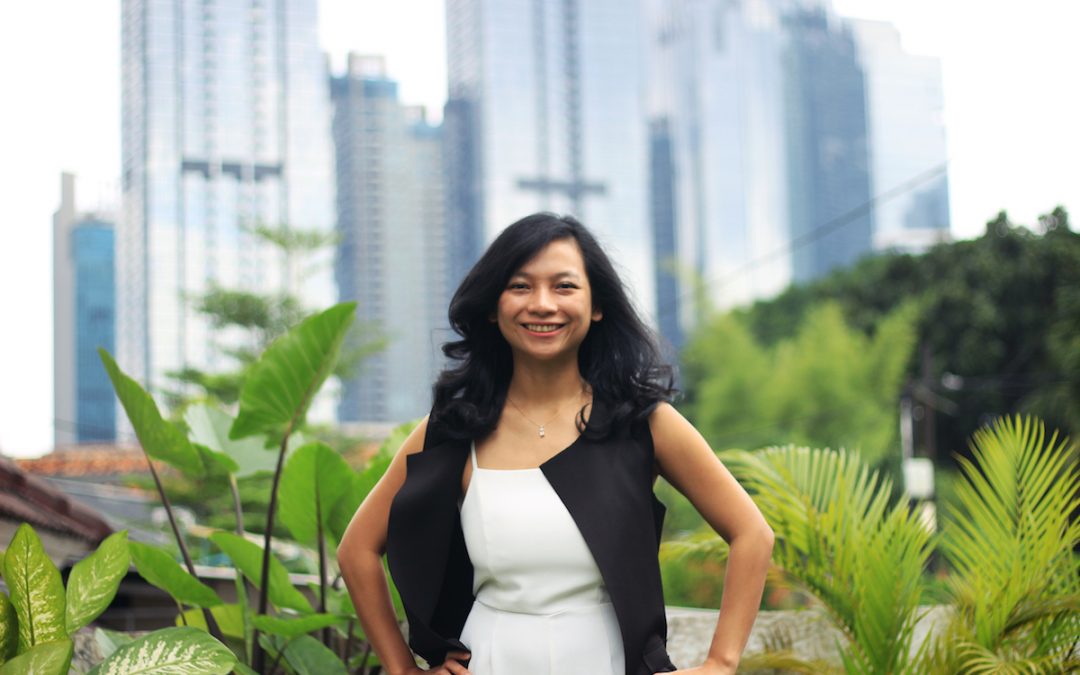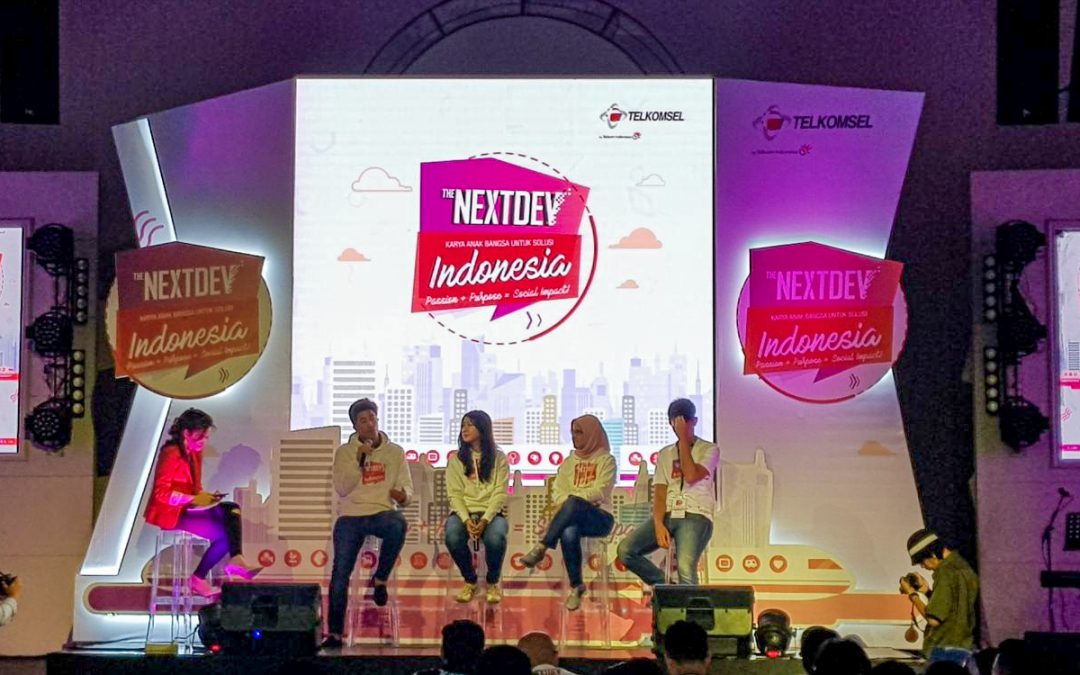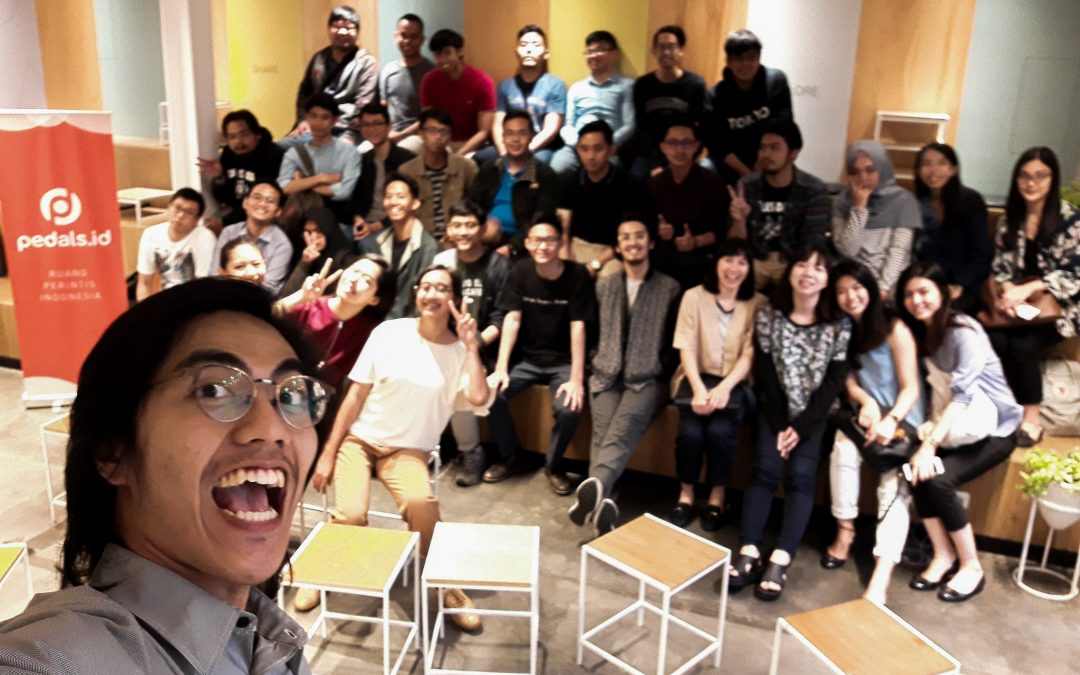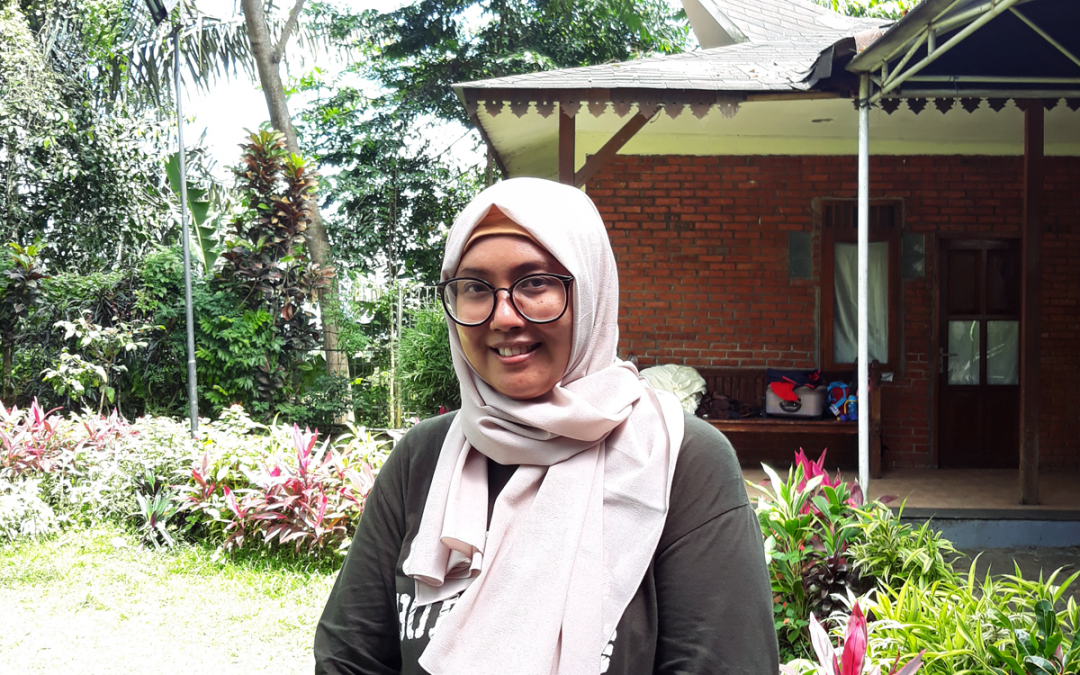Tell me a bit about yourself.
My name is Farina Situmorang. Five years ago I moved back to Indonesia and started a services company called Catalyst Strategy. We focus a lot on marketing and digital strategy, helping companies and even political clients in creating campaigns. In the last five years of my journey, I dabbled in a lot of other companies; by dabble, I mean starting three other companies. Right now, I’m only focusing on Catalyst and am on the board of a beauty company. Catalyst provides consulting services for marketing, communications, and crisis strategy. We take on a lot of interesting projects, including those involving Blockchain technology.
How did I get here? Well, I started my career in Indonesia, and I’ve always been working for technology companies, in marketing and sales roles. I started in IBM, Microsoft. Then I went to the United States for business school. After that, I moved to a company that you might still know, Blackberry in Canada, doing their strategy at corporate headquarters in Waterloo, Canada. Then I moved to San Francisco, where I worked for a small marketing automation startup. Following that, I worked for WhatsApp (acquired by Facebook). Now I’m here.
Such a diverse journey! What made you want to get into the tech entrepreneurship scene in the first place?
Part of it is wanting to prove yourself and show that you can succeed in front of others. You kind of also believe in an idea. When I was in San Francisco, I was fired (this is before WhatsApp) and I thought to myself, “What am I going to do next?” I’ve always wanted to do entrepreneurship for some reason; I think it runs in my family, so it was kind of like, “Oh maybe it’s time to do it.” Because at that point, what’s there to lose? I was sleeping on a couch already.
The only idea I had at the time was to take a lot of the strategies, techniques, and tools that I’ve learned through my technology marketing experiences and use them in a more socially impactful project. At the time, I thought this would be the presidential election. So that was it, actually. I thought, “Okay, I’m gonna come back home and I’m gonna run the digital campaign for a presidential candidate.” I came back to do just that and convinced my two partners to leave their full-time jobs to do it, too. They’re still my partners today. We basically all came together for that particular idea, which in the end we managed to do a year later, but not without blood, sweat, and tears. We got rejected so many times and we thought we failed so many times. But fortunately for us we were rejected by the right people and we got OK’d by the right ones, too.
How do you motivate yourself to keep going in the face of rejection? What’s your strategy to cope with it?
I’m not gonna lie, it always sucks. I think most entrepreneurs, or even investors or founders, we try to kid ourselves and think that “Oh, failures are so important and being rejected is part of success, and you will only learn when you make mistakes.” But at the end of the day, it doesn’t feel good. We have this idea of romanticizing failure, but in the end we still don’t like it. And I don’t like it. But it’s reality. You get rejected all the time. I still do.
To add to that, it’s actually quite easy to be rejected by others that you don’t necessarily care so much about. But when it comes to receiving feedback from people you are closest to – say your partner or your spouse or your parents – that’s a different level of hearing your mistakes or listening to your failures, so to speak, as they’re being put in front of you by people you care so much about. And you want their approval so much.
How I deal with it is not taking it too personally and realizing that a lot of things are not under my control, understanding how I can do better next time, and asking myself, “is this for me, is this not?” Just having that self awareness, that’s how I deal with it. And how I cultivate self awareness is through meditation and self reflection. I actually do it religiously every morning – it’s how I start my day. It’s something you kind of have to build.
As a side note, my husband keeps on telling me I’m really bad at receiving feedback. But it is what it is. I said, “Well, there’s content and then there’s delivery. And your delivery sucked!” (laughs)
Have you faced any challenges as a female entrepreneur and CEO?
I get invited a lot to panels on women in technology or girls in tech or whatnot. You know, sometimes I question it. Like, this is 2018 and we’re still calling female CEOs, “female CEOs” instead of just CEOs. The term is not a “boss”, it’s a “boss lady”. Things like that.
In terms of gender-specific challenges…I realize that we tend to be very permissive. I was asked this question a while back and I was like, “Honestly I don’t feel any differences being a woman in the tech space or running my own company. I don’t think I’ve ever felt discriminated.” Until you know, there was a time last year when all these women founders came out and they named a few VCs that were treating them inappropriately. And all these stories came out. I actually had an interaction with one of those VCs. He lingered in my hotel during a business trip out of town. Yet, at the time, I didn’t think there was anything wrong about it.
You know, how permissive women can be…it’s mind-boggling. I tend to let it go, let it slide. It’s almost expected of them to do that to me or other women. As if it is okay for some men to allude to you being pretty or beautiful or whatever in a business setting. And when they do these things and you’re kind of just like, “Ugh whatever, it happens all the time, right?” So that was like a realization moment for me, to be honest. I didn’t know what to do in that situation, and I still don’t know.
Another example: I was in a restaurant for a meeting only a few days ago, actually. And the ratio of males to females…I was the only female. There were 14 other CEOs and investors, and they were all male. I was the only woman there. And the only question they asked me was, “Are you married?”
That was probably one of the very first times that I had to command a presence in a room, versus people already gravitating towards me or asking me questions. If I didn’t ask enough questions, I don’t think they would’ve seen me there. The environment was aggressive. This is just another anecdotal example.
But the truth of the matter is that 80% of the time, I don’t feel any differences. But there’s always that 20%. I don’t really like to play the victim or the woman card because I don’t feel victimized and I don’t feel like I’m not given the same chance. But maybe I should be speaking out more.
It’s a known fact that an all-female founder team doesn’t get as much investment in the VC game. There are VCs out there that blatantly would just say no to female founders. And they say it very openly. These cases are not ok. I think I probably also need to educate myself on how best to deal with that.
How do we get more girls to be CEOs, managers, partners of firms?
For one, when it comes to choices and options, anyone – regardless of gender, sexual orientation – should have options and choices. And once you have the option, the choice, people should be free to do whatever they want to do.
I dont think it’s a question of should or should they not want to be leaders? Is being a CEO a good thing? I don’t think it’s good or bad. I think it’s just a choice. If those women want to take this choice or exercise this option, then yes I think the ecosystem and industry should be nurturing anyone – not just these girls – who wants to achieve these positions. I could say the same about people coming from outside elite universities, or people coming outside of Java island. These people also don’t have enough opportunities, for example. I think that the conversation should be a lot more broader.
Do you have any advice for first-time entrepreneurs who want to embark on their entrepreneurship journey?
I think first and foremost, you really have to understand why – why do you want to do this? Because you know, if your excuse or your reason to start a company is to make money, there are easier ways to make money. Starting your own company might be one of the riskiest ways you could possibly take. Ask yourself over and over, “Why am I doing this?”
Then, there’s what kind of entrepreneur you want to become. Our company did really well in the beginning doing services. It’s when we decided to stray from our path – what we’re supposed to do – and tried to dabble here and there… that’s when we didn’t do so well. There are going to be investors and other entrepreneurs and other founders that will ask you why you’re doing the things that you’re doing. They’ll ask, “Don’t you want to achieve bigger and better things?” and you’ll want to believe that it’s true. People will come to you if they see you as somewhat capable and they’ll want you to push your boundaries. You have to decide whether you want to be that kind of entrepreneur or not.
Nowadays, people think the only way you can do a startup is to look up to these big companies and aspire to be like them – the Grabs of the world, or Uber, GO-JEK, Facebook. You have to realize how many people actually become that, what it takes to get there, and whether or not that’s for you. I think that was a very painful learning for me over the last five years. Because your ego says you want it and you can do it, and probably you can if you persevere and go through that, but is that actually something you want? And are you willing to give up the things you need to give up to get there?
How about advice for current entrepreneurs?
Asking these really hard, truthful questions is very important. Why? For me, the elegance of the consulting process is something I love. Not everybody is so passionate about that. If that is what I love to do, then why do I want to do all these other things that comes with being the CEO of something like GO-JEK or Traveloka? There’s a lot of operations and routine, which is not what I do best. So knowing yourself is very important for entrepreneurs. Self awareness is so key, and the ability to question that all the time, to ask if that’s something that you want.
Also important is knowing that you probably won’t be great at everything. Knowing that will help you decide who to partner with, who to found the company with. If you don’t know that, you should know that. As I said, I’m much more strategic. I actually don’t really like looking into details. I would make a really terrible CFO. That’s just not me. So you need to partner with people like that and surround yourself with people who are better than you are at doing all these things that you can’t do.
When is the right moment to pivot? To scale? And when do you decide to stick your ground?
The notion of growth and scale and expansion can be tricky. Like why? Are you not happy with being very premier and boutique and just good at what you do? Or do you really need to scale up? You need to ask yourself how much money you need to make at the end of each month. And then your business decision, your business model should reflect that.
It really all comes back to business fundamentals. Will there be a market for what you’re building? Will people pay for it? How hard is it to sell to other people? If it’s so hard, you have to question whether or not you’re doing the right thing. It’s like a test. When things are moving in the right direction, it will still be hard. None of this is easy, but it’s not going to feel like you’re swimming against a current. When it comes to building something that doesn’t have a market and the business fundamentals aren’t there, you’re going to get questioned so much more. 10x, 100x more the usual amount. Swimming against the current is not fun. You’re not going to be moving anywhere. So I would question that.
What is one tangible step to achieving success?
On a lot more practical level, my advice is to seek mentorship. I think what a lot of younger people tend to take for granted are the opportunities to be mentored and coached. They tend to want to go through things on their own. They don’t seek enough advice.
I didn’t get here on my own. I have a lot of mentors and advisors and coaches that have helped me get to where I am. It’d be impossible without them. Nobody can open your perspective more than those who’ve done it before. If you want to be a CEO, then you need to start talking to CEOs. Because they’ve been there, they’ve done it. It’s very important to surround yourself with people who you aspire to become.
In my company, there’s a lot of younger employees. They tend to stick to their own classmates from university or high school. You need your peers of course, but at the same time you need to be talking to people who are older. People who have been out there in the world doing many other things. If you’re not doing that, then your perspective isn’t really open. If you’re aspiring to be a CMO or COO or founder, then you need to be talking to them. I don’t think that’s being taught enough at local universities. In business school, I was told to reach out to as many alumni as possible. That mindset is not being talked about enough here.
Do you have any mentors or role models that you constantly look up to?
Yes. And they come in different forms. You kind of realize that people are not perfect, and you take what you can from different folks. For example I look up to this one CEO and he always gives me very pragmatic feedback on my business decisions, for example. But that’s the only advice I would get from him. I wouldn’t ask him for any personal stuff.
I very much look up to a group of my girl friends. I seek advice from my friends who are investors, other CEOs, and my own husband. He’s my constant coach and mentor. I look up to my grandmother very much. She is probably one of the most successful entrepreneurs I know but has also failed multiple times. She was a widow at 28 with five children; my mom grew up without ever seeing her father. One day she started a textile factory on her own and ended up becoming worth tens of millions of dollars. Her story is fascinating and means a lot to me.




